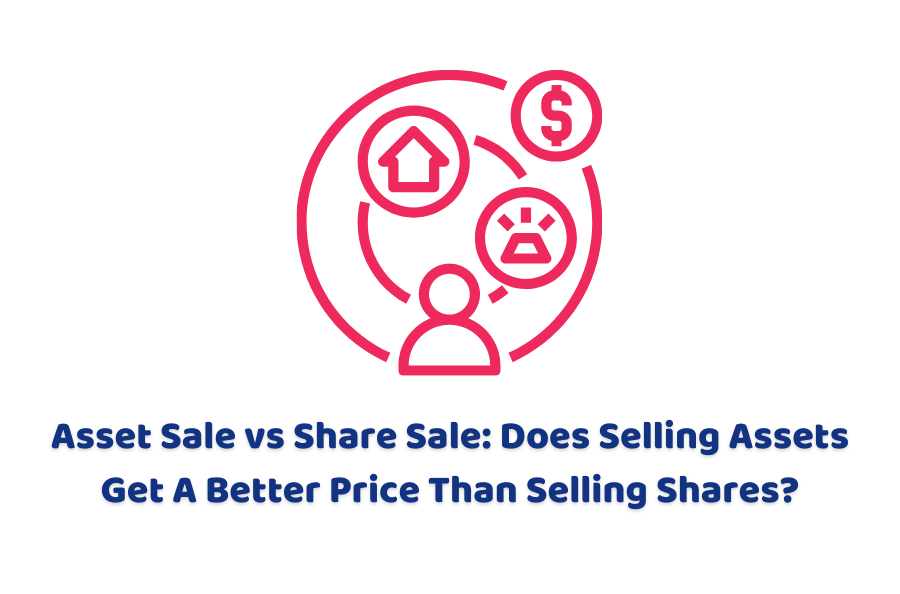Exiting a business is not as simple as it seems due to various legal, technical and regulatory issues. If you need to sell your business, you can have two options asset sale vs. share sale. Many businessmen don’t consider the most important factors of tax obligations and sell their business at a much lower valuation and buy a business with many taxes and other obligations.
If you want to avoid these mistakes, you can continue reading this informative article as we will walk you through these two sale strategies and highlight the major differences between them. On the other hand, we can help you by defining the pros and cons of each sale strategy. So, let’s delve deep into these important business selling procedures!
Do you want a reasonable business exit strategy? Our accountants can help you with their years of experience in corporate business. Why not meet our team in the UK?
Asset Sale
Asset Sale, as you can guess by its name, is the sale of the assets of a business. The assets include the sale of machinery, equipment, land, intellectual property rights, goodwill, research and development. In other words, both tangible and intangible assets will be a part of this asset sale deal.
In an asset sale, the businessman who will buy a business will prefer this business deal. The buyer will evade the tax proceedings and the seller will have to bear the burden of all the tax and other liabilities. Moreover, the seller has to pay a personal marginal tax rate on a dividend. However, the seller can request the buyer for a higher price due to the higher tax obligations.
On the other hand, the buyer can buy all or some of the assets. It all depends on the discretion of the buyer. Moreover, he can sell the assets to other buyers as well. Besides, the buyer will have to pay a higher price as compared to the share sale price due to the lower level of risk.
Share Sale
In a share sale, the buyer achieves the ownership and becomes a legal partner of a business. As a result, he becomes responsible for all the taxes and other liabilities accompanying a business. For example, product liabilities, tax liabilities, disputes and claims, product warranty and lawsuits etc.
The share sale is preferred by the sellers as it transfers all the tax and other asset liabilities to the buyer. The new owner will pay all the taxes and liabilities. However, the buyer can request a modification in the agreement and add a clause for the protection against any pre-sale taxes and liabilities.
Similarly, the sellers will be absolved of all the tax liabilities. As a result, the seller will receive a lower price due to the increased tax liabilities and a higher level of risk.
Difference between Asset Sale Vs. Share Sale
There’s a slight difference between asset sales and share sales. However, the benefits are different for the seller and the buyer on the asset sale and the share sale. So, the buyers and sellers prefer different sale types.
This preference results from a difference between tax liabilities and the flexibility in buying the assets. The buyer prefers the asset sale over the share sale due to lower risk and reduced tax liabilities.
On the other hand, the sellers prefer to opt for the share sale as all the liabilities are transferred to the potential owner.
Let’s Conclude
So, we can say that share shale is attractive for the sellers and the buyer is attracted to the asset sale. The sale of assets gives the flexibility of choosing among different types of assets and transferring the assets to another buyer.
Asset sale vs. share sale has another option of hybrid sale where the buyers and seller agree on a unique combination of the asset sale and stock sale. They can come to a deal where the risks are shared and they can enjoy a reasonable price and ownership of the assets ultimately.
Do you need help in the valuation and selling of your business? Accountingfirms is a platform where you can find bespoke accounting services. Contact us now!
Disclaimer: The information provided about asset sale vs. share sale in this article is general in nature. It does not intend to disregard any of the professional advice.

